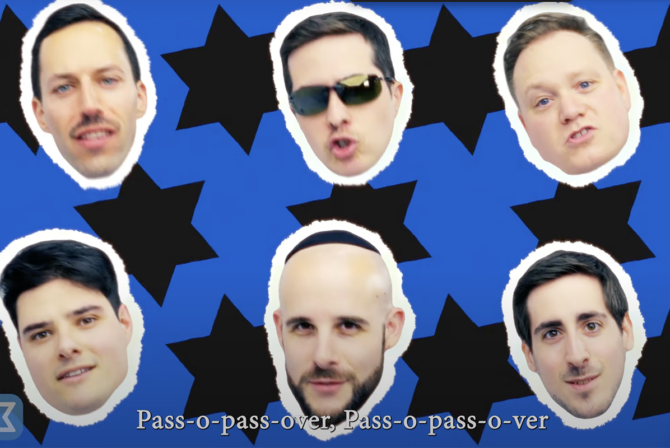I am a (soon-to-be) divorced dad. What this means on a practical level is that I parent day to day without the input of anyone else, for the most part. Of course I have plenty of role models, but on the ground, I am winging it without another adult.
My daughter Ronia is 4, and though she is a curious and highly observant individual, she does not really pepper me with questions in the matter of some kindergartners in literature. Nor does she really respond to my questions/reveals in an outsized manner. When I warned her I was applying for a job with super long hours (I am fortunate enough to have only worked full-time for one month of her life) her reaction was: “Does that mean I can have more sleepovers with [her friend from school]?”
But when she does ask me a question, it tends to be a doozy, such as “What is democracy?” or “Why didn’t [the government of Israel] allow Gabe [my friend who was on the Flotilla] to sail?” or “Is Voldemort mean to Harry Potter because Voldemort is rich and Harry is poor?” As the tenor of these questions makes obvious, I am comfortable with a pretty high level of political discussion from my daughter. But I was unprepared for the most obvious question of all.
“Why did you get divorced?”
Though my daughter has a couple of children’s books on the subject, the main thrust of them is it not being the child’s fault, not the specific reasons for the breakup. So successful have these books been in their indoctrination, once when I referred to something in fact being Ronia’s fault, she burst into tears. “You always say it’s YOUR fault!”
I breathed. I said that her mother and I no longer loved each other in that way, but that we would always love her, that parental love was different. That our fighting was not good for her. All true, and all sounding vaguely like a cartoon divorced animal in a book, but she seemed to accept it. She was already getting philosophical: “I used to be really sad and want you and me and mama to all live in the same house.” My heart went out to my daughter; I thought about what it meant to have your two favorite people rarely in the same place. But I found the past tense encouraging.
“We thought it was important to get divorced while you were still young, so you had plenty of time to get used to it. Are you more used to it now?”
“Yes,” she said.
She really seemed to be, but I am the last person to be able to evaluate that. Then, she shared a memory. “I remember you standing outside of the door of your house, and Mama and I were inside, and you and I were waving to each other.” I found this dreamlike vision heartbreaking in its detail but more in its confirmation that she and I are still connected, that like the cartoon animal parents and children, we have avoided divorcing each other.







